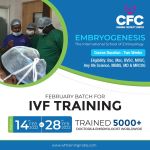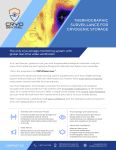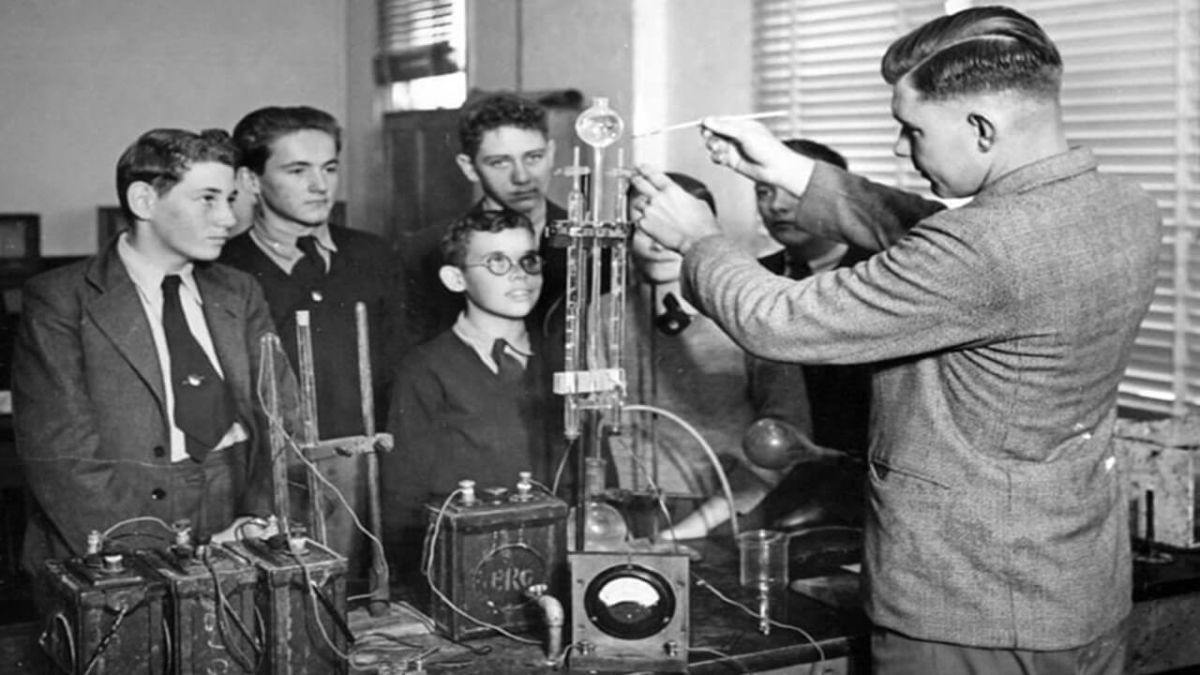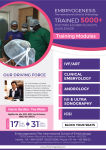
IVF NewsNews: Human embryo gene expression starts at one-cell stage
Dr Maria Botcharova 13 January 2022
A new study shows that embryos begin to show gene expression when they are just at the single-cell stage, right after fertilisation. Previous investigations could only detect genetic transcription activity once the embryo had grown to four or eight cells, around two or three days after fertilisation. 'This is the first good look at the beginning of a biological process that we all go through – the transit through the one-cell embryo stage,' said Professor Tony Perry, one of the researchers who led the study, at the University of Bath. A team of scientists, co-led by Professor Perry, Dr Giles Yeo at the University of Cambridge and Dr Matthew VerMilyea at Ovation Fertility in the USA, used high-resolution single-cell RNA sequencing to measure genetic transcription in 12 human egg cells provided by seven donors and 12 human embryos provided by six different donors. Conversely, the team found reduced gene expression in embryos that did not go on to develop healthily, such as those fertilised by two sperm cells, suggesting that this early genetic activity is essential for successful development. 'Without genome awakening, development fails, so it's a fundamental step.' Professor Perry continued. The team found that while the genes expressed in the single-cell embryo continued to be expressed at the two, four and eight-cell stages, their activity was substantially diminished by eight-cell stage. 'It looks as if there is a sort of genetic shift-work in early embryos: the first shift starts soon after fertilisation, in one-cell embryos, and a second shift takes over at the eight-cell stage,' said Professor Perry. Their findings may lead to a better understanding of what triggers the activation of transcription, something that is not well-understood. 'Although the trigger for activation is thought to come from the egg, it's not known how; now we know which genes are involved, we can locate their addresses and use molecular techniques to find out,' said Professor Perry. Some factors involved in the activation process are also associated with cancer, suggesting that they may be responsible for triggering the activity in healthy embryos, while abnormalities could later manifest as a risk of cancer. It is also possible that epigenetic traits, may be passed from parent to child at this early stage, by altering the gene activation after fertilisation. 'If true, we should be able to see this altered gene activation signature at the one-cell stage,' Dr Yeo suggested. The research was published in the journal Cell Stem Cell. SOURCES & REFERENCES
[ Full Article ] News: ART & Embryology training program
Chennai Fertility Center and Research Institute 07 January 2022

February 2022 Training Batch Schedule - 14th Feb - 28th Feb 2022 The International School of Embryology was established to offer training for clinicians in advanced reproductive technologies. Our skill and precision to all aspirants help them to know in-depth knowledge and experience. The members of our teaching faculty aim to bring doctors and embryologists to the highest level of knowledge about reproductive techniques and practical capability in the field. Our courses cover basics in Andrology, embryology, ICSI, and cryosciences (Hands-on). Limited Seats. For admission Contact 9003111598 / 8428278218 [ Full Article ] Featured Product: Announcing the general availability of CryoSentinel
Cryo Sentinel LLC 20 December 2021

Alpharetta, GA, December 20, 2021 – CryoSentinel®, the world's only Cryogenic storage surveillance system that uses thermographic imaging to monitor cryo-storage tanks, is now generally available to order in North America and select countries. Using proprietary infrared technology to monitor the exterior of cryo-storage tanks, CryoSentinel will detect vacuum loss and immediately notify laboratory staff of a tank failure to provide them with adequate time to prevent the spoilage of biological materials. Each CryoSentinel system, through a visual representation of temperature displayed as colors, provides laboratory staff the ability to validate dewar status. This is accomplished through a live infrared video feed from a monitor at their location or from anywhere in the world, the only cryo-storage monitoring solution to do so. Developed because traditional tank monitoring systems are often inaccurate and known to give staff inadequate notice to prevent catastrophic loss, CryoSentinel is superior to other systems. Through the use of infrared cameras aimed at tanks, the CryoSentinel System will immediately sense temperature change and send an alarm if a tank is failing up to 20 hours earlier than other monitoring systems. Thomas Elliott, President of Cryo Sentinel, developed the system as an embryologist because he wanted to design a better way to protect the reproductive cells that were in his own care. According to Thomas, "In the event of a sudden dewar failure there is rapid expansion of the nitrogen which can supercool the tank chamber, causing internal probes to indicate that there is still liquid nitrogen in the dewar until it is too late. CryoSentinel identifies thermal changes caused by such a vacuum failure. This unique method means that CryoSentinel will be able to warn staff sooner than any other cryogenic alarm system." “I'm pleased to be working with CryoSentinel to make this superior technology available to both IVF and the greater cryogenic storage industry. It provides a much needed overlay to traditional cryogenic monitoring systems without any infrastructure change or disruption to current operations. Lab staff and the people they serve can be confident in the safe storage of their biological materials,” said Rick Dagenais, Cryo Sentinel's Chief Operating Officer. About Cryo Sentinel: Cryo Sentinel seeks to enhance the protection of cryogenically stored materials by improving the reliability and alert time of cryo-storage monitoring systems. Founded by Thomas Elliott, an embryologist with more than 25 years of IVF laboratory experience, the company focuses on patent pending real-time thermographic surveillance and highly reliable alert technologies. For more information, visit cryosentinel.com or email [email protected]. [ Full Article ] News: Endometrial scratching offered by 1/3 of IVF clinics
Manon Everard 20 December 2021
Endometrial scratching is currently being offered by 34 percent of IVF clinics in the UK, Australia, and New Zealand, according to a latest survey. The procedure is performed as an add-on to standard IVF treatments and involves the use of a catheter to intentionally scratch the endometrium to cause an inflammatory response. Researchers at Monash University in Melbourne, Australia, anonymously asked 121 fertility specialists, embryologists, and fertility nurses whether their clinic performed the procedure and whether they thought it was beneficial. Their results, published in Human Fertility, found that less than 10 percent believed it improved pregnancy outcomes but that it was being offered by 34 percent of clinics. The topic has attracted a great deal of debate due to uncertainty regarding how endometrial scratching works and whether it increases the chances of live birth. Dr Sarah Lensen from the University of Melbourne, Australia, and one of the authors of the study told Inverse, 'We don't have good evidence that endometrial scratching helps people to have a baby from IVF, and it's a painful procedure associated with a cost for the patient too'. In the same survey, 29 percent of fertility specialists believed that endometrial scratching could be advantageous in women struggling specifically with recurrent implantation failure. Dr Lensen appreciates that this might be driving the continued use of endometrial scratching in clinics. Of those asked, 55 percent believe that endometrial scratching offers a reduction in psychological distress. Dr Lensen's understanding is that 'these extra treatments help to keep the hope alive and help patients to feel more in control in a very uncertain time'. Attitudes towards the procedure have shifted over the last five years; a previous study by Dr Lensen, published in Human Reproduction in 2016, found that 83 percent of professionals within the fertility sector recommended endometrial scratching. Analysis from the follow-up survey showed that 51 percent of clinics that previously offered endometrial scratching, no longer do. Dr Lensen believes the disparity can be attributed to a greater number of high-quality studies being published. The team are encouraged by the decline in the number of clinics offering endometrial scratching, proving that providers are listening to the research and acting to take patient's wellbeing into account. Globally, 48 million couples are affected by infertility. With add-ons, such as endometrial scratching, becoming increasingly popular, the Australian team will continue their research with an aim to provide resources to patients to aid them in making informed decisions about their care. SOURCES & REFERENCES
[ Full Article ] News: Fertility treatment atlas reveals inequalities in access across Europe
Paige Mumford 20 December 2021
New research has ranked 43 European countries based on fertility policies and accessibility of treatments, revealing a mix of policies across Europe. The European Atlas of Fertility Treatment Policies was launched by Fertility Europe, a European organisation encompassing 25 countries, in collaboration with the European Parliamentary Forum for Sexual and Reproductive Rights. The atlas scored each country, with 100 percent classified as 'a perfect country', with good regulation, wide availability of various fertility treatments to diverse family types, public funding for treatments, and an emphasis on the patient perspective. Anita Fincham, manager of Fertility Europe and co-author on the study, said: 'Every country deserves to be a perfect country with good regulations granting equal, safe and efficient access to fertility treatment to all who need it.' Key findings of the atlas included that 38 countries had laws regulating assisted reproduction and availability of fertility treatments seemed to favour heterosexual couples. Insemination with donor sperm was provided to heterosexual couples in 41 countries, to single women in only 30 countries, and to female-only couples in just 19 countries. Regarding public funding for up to six cycles of IVF, most countries (35) had partial funding, while only three countries had full funding and six countries had absolutely no funding at all. The countries with the highest score (86 percent) were Belgium, Israel, and the Netherlands. Among the upper-middle in rankings, the UK scored 75 percent, although this score did not differentiate between the countries making up the UK where provision of state-funded IVF varies. Countries with the lowest scores were Albania (13 percent), Armenia (26), Poland (27), and Ireland (27). As one of the lowest scorers on the atlas, categorised as 'exceptionally poor,' Ireland had no assisted reproduction laws and no public funding for fertility treatments. According to the Irish Examiner, a single round of IVF can cost €5,000 in Ireland, with associated costs sometimes increasing the price beyond €10,000. Fine Gael MEP Frances Fitzgerald said: 'The vast majority of EU countries fund a number of IVF sessions, whereas Ireland currently funds none... Irish couples and families need access to such services and treatments without delay'. Based on the atlas results, the researchers made a call to policymakers with five key requests: to recognise a universal right to have a child across the EU; ensure equal access to fertility treatments; provide public funding for these treatments; encourage the public sector to provide better information on fertility issues, and try to remove the stigma surrounding infertility. SOURCES & REFERENCES
[ Full Article ] News: Embryo-like complexes generated from mouse stem cells
Dr George Janes 20 December 2021
Reprogrammed mouse stem cells self-organise into embryo-like structures, providing a new tool for embryology research. By switching on specific genes governing the timings of cell-type specification during embryo development in mice, scientists at the University of Bonn, Germany, have been able to recreate primary stem-cell types found in early embryos. When cultured together, the cells organise themselves into a developing complex resembling early embryogenesis. 'Embryo development is largely based on self-organisation,' explained Professor Hubert Schorle of the Department of Developmental Pathology at the University of Bonn and corresponding author of the paper published in Nature Communications. 'Each cell releases messenger substances into its environment and thereby helps determine the fate of its neighbours.' When a fertilised egg begins to divide, it goes on to produce three primary types of stem cells which differentiate to form layers of the early embryo. Scientists have previously used these separate cell types to form a group of cells that can spontaneously organise itself. However, this previous work involved a delicate balance of culturing the different cell types in compatible growth conditions and did not always yield reliable results. By starting with only one type of stem cell, embryonic stem cells, Professor Schorle's team activated certain genes inducing them to take on the identities of other stem cells found in early embryos. These new cell types can then be mixed to form what the researchers name an 'embryoid'. 'This resembled a five-day-old mouse embryo,' said Arik Horne from the German Centre for Neurodegenerative Diseases and the LIMES Institute at the University of Bonn, and co-first author of the paper. 'The disordered mixture of the three cell types had therefore evolved into a strictly ordered structure, much like the one that normally emerges from a fertilised egg.' Using fluorescent proteins to mark each stem cell type, the researchers were able to track how these cells integrated and gave rise to different regions of the developing embryo. They also used sequencing technology to analyse the gene expression patterns across the 'embryoids', revealing the cells' developmental paths. The team hope that their findings will provide an effective platform for studying various aspects of embryo development – they plan to extend the method to primate embryos. Looking to the medium term, they propose that 'embryoids' will provide an alternative to the use of animals in testing compounds harmful to fetal development. SOURCES & REFERENCES
[ Full Article ] News: Hands-on IVF, ICSI & Vitrification Training
Dr. Sarabpreet Singh 14 December 2021

The Fertilis Academy in association with Artemis Hospital is offering Hands-on IVF, ICSI & Vitrification Training for #gynecologists #embryologists #andrologists, and IVF Professionals planning to enhance their skills. [ Full Article ] Webinar: CARRY ON INSEMINATING
International IVF Initiative 13 December 2021

Tuesday 14th December, 2021. 3PM EST/ 8PM GMT / 9PM CET Presenters: [ Full Article ] News: Early male and female germ cells regulate their gene expression differently
Eleanor Gallegos 13 December 2021
Gene expression during early development of primordial germ cells (PGCs) is sex-specific. Research led by Professor Petra Hajkova from the Reprogramming and Chromatin research group at the Medical Research Council London Institute of Medical Sciences has shown for the first time that germ cells, which give rise to either sperm or egg cells, have different epigenetic pathways to regulate gene expression. 'Epigenetic reprogramming is a highly orchestrated progress during the germline life cycle,' said Dr Tien-Chi Huang, a post-doc and first author of the paper published in Nature. He added: 'Our study provides a long-awaited answer to understand how germ cells coordinate different layers of controls to maintain gene expression during this process.' During early development of PGCs in mammals, widespread DNA demethylation occurs. DNA methylation is an epigenetic mechanism used to regulate the transcription of genes. When a methyl group is added to DNA, gene expression is silenced. When DNA is demethylated, uncontrolled transcription can occur. Despite the widespread demethylation observed in PGCs, uncontrolled gene expression does not occur. This suggests the presence of other epigenetic mechanisms that regulate gene expression. The researchers aimed to identify the mechanisms that regulate gene expression after DNA demethylation occurs in early development. They observed that methylation of K27 on histone-3 (H3K27me3) compensates for DNA demethylation in both female and male germ cells. This system was found to be critical for female germ cells, however, male germ cells were also able to use methylation of K9 on histone-3 (H3K9me3) to regulate gene expression. The researchers then used a mouse model to delete Ezh2, the gene responsible for K27 methylation. This had a profound effect on female germ cells – loss of H3K27me3 resulted in uncontrollable gene expression, resulting in cell death. However, male germ cells were not affected. While this mechanism is critical for female germ cells to differentiate into egg cells, male germ cells can use other mechanisms to differentiate into sperm cells – methylation of K9 on histone-3. 'These results teach us something fundamental about the control of gene expression,' said Professor Hajkova. 'What we have seen looking into the development of embryonic germline has a much broader impact because we know that a number of human pathologies are characterised by global reduction of DNA methylation. This means our results provide valuable insights into what the diseased cells need to rely on to control their genes, revealing their potential vulnerabilities.' Loss of DNA methylation has frequently been observed in cancer. An improved understanding into epigenetic silencing systems will allow the development of new therapeutic agents, with EZH2 and DNA enzymes already identified as targets. SOURCES & REFERENCES
[ Full Article ] News: ART & Embryology training program
Chennai Fertility Center and Research Institute 06 December 2021

January 2022 training batch schedule - 17th Jan 2022 - 31st Jan 2022 The International School of Embryology was established to offer training for clinicians in advanced reproductive technologies. Our skill and precision to all aspirants help them to know in-depth knowledge and experience. The members of our teaching faculty aim to bring doctors and embryologists to the highest level of knowledge about reproductive techniques and practical capability in the field. Our courses cover basics in Andrology, Embryology, ICSI and Cryosciences (Hands-on). Limited Seats. For admission Contact 9003111598 [ Full Article ] |